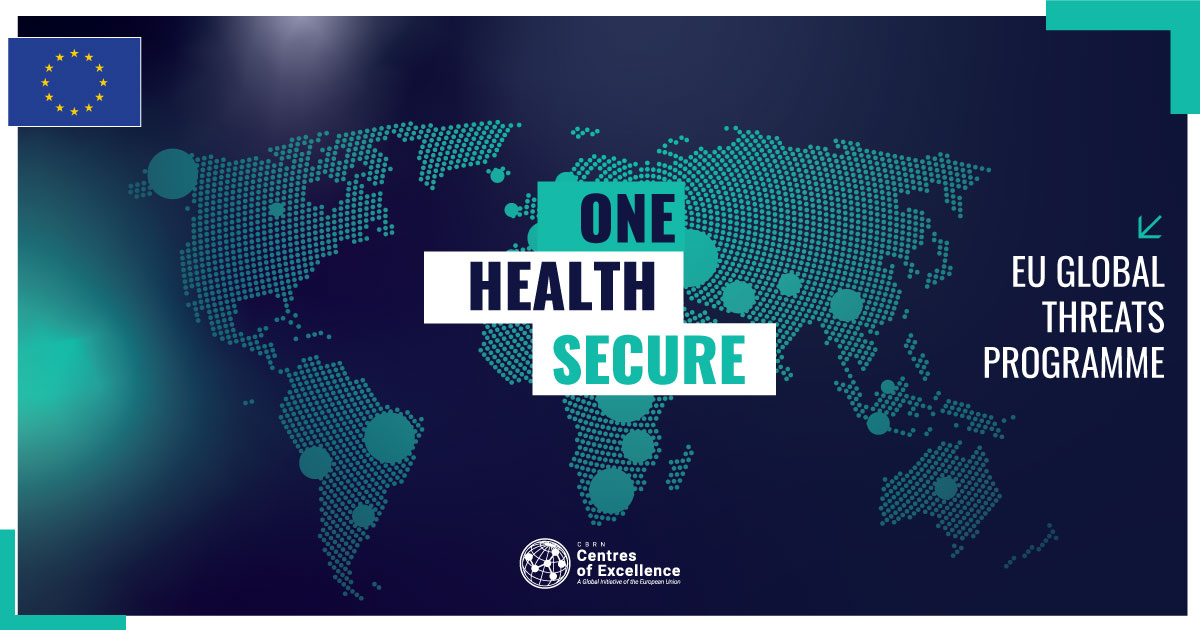
Context
The world has witnessed a rise in infectious disease outbreaks, driven by global changes. This is particularly evident for vector-borne diseases (VBD) carried by vectors, such as mosquitoes and ticks. The spread of these vectors across regions is accelerated by environmental degradation, climate change, and the globalisation of humans and goods movement. As vectors do not know borders, they can travel to new territories introducing diseases to countries unaccustomed to them, posing significant challenges to health security, while contributing to the emergence of infections in both humans and livestock with substantial economic impacts. It is important to support measures that strengthen prevention and promote greater collaboration between the human, animal, and environmental health sectors to mitigate the impacts of these emerging biological risks and safeguard global health.
Overall objective
This project aims to support the partner countries to adapt to climate change by strengthening their preparedness capacities to vector-borne diseases and by promoting the adoption of the One Health (OH) approach.
Specific objectives
- To improve prevention by integrating the environmental sector into the One Health network of experts and promoting the engagement of communities.
- To enhance preparedness and response capacities to vector-borne diseases through improved diagnosis, vector control, wildlife monitoring, risk mapping and communication.
- To strengthen One Health systems awareness, advocacy, and adoption in participant countries.
- To support the development of the next generation of OH professionals.
- To strengthen transfer knowledge capacities.
Concrete activities
- Integration of environmental experts into the existing network.
- Strengthening of diagnostic capacities in human and animal laboratories.
- Support to the implementation of laboratory quality and biosafety standards.
- Support to the assessment of innovative diagnostic tools for disease surveillance in specific geographic settings.
- Strengthening of vector surveillance and control (insecticide resistance) and tick identification.
- Capacity-building activities to enable the monitoring of virus in wildlife.
- Training of experts on how to encourage the local community engagement to participate in wildlife monitoring, and on policy brief writing.
- Supporting the organisation of meetings to present the policy briefs to stakeholders.
- Strengthening of geographic information system (GIS) modelling capacities.
- Support to the development of One Health action plans in partner countries.
- Support to the implementation of members' initiatives through call for application.
- Support to the development of One Health modules.
Expected results
- Promotion of a more comprehensive approach through the integration of environmental experts and the support of community engagement.
- Improvement of diagnostic of virus and related biosecurity aspects.
- Reinforcement of vector control, wildlife monitoring and risk mapping capacities.
- Promotion of the One Health added-value at national and regional level.
- Improvement of the One Health operationalisation in partner countries.
- Promotion of cross-sectoral collaborations.
- Support to knowledge-transfer to initiate dialogue with policymakers to contribute to political engagement towards the adoption of the OH approach.
- Promotion of the sustainability of the network through the empowerment of its members.
Expected achievements
- Improving prevention by integrating the environmental sector in the One Health network of experts and promoting the engagement of communities.
- Enhancing preparedness and response capacities to vector-borne diseases through improved diagnosis, vector control, wildlife monitoring, risk mapping and communication.
- Strengthening One Health systems awareness, advocacy, and adoption in partner countries.
- Supporting development for the next generation of One Health professionals.
- Strengthening transfer of knowledge capacities.
*This designation is without prejudice to positions on status and is in line with UNSCR 1244 and ICI Advisory opinion on the Kosovo declaration of independence.
**This designation shall not be construed as recognition of a State of Palestine and is without prejudice to the individual positions of EU Member States on the issue.
- Project duration
- 11 Jan 2024 - 11 Jan 2027
- Project locations
- AlbaniaAlgeriaArmeniaBosnia and HerzegovinaBurkina FasoEgyptGeorgiaJordanKosovoLebanonLibyaMaliMauritaniaMontenegroMoldovaMoroccoNigerPalestineSenegalNorth MacedoniaSerbiaTunisiaTürkiye
- Overall budget
- €5 000 000
- Threat area
- CBRN Risk Mitigation
